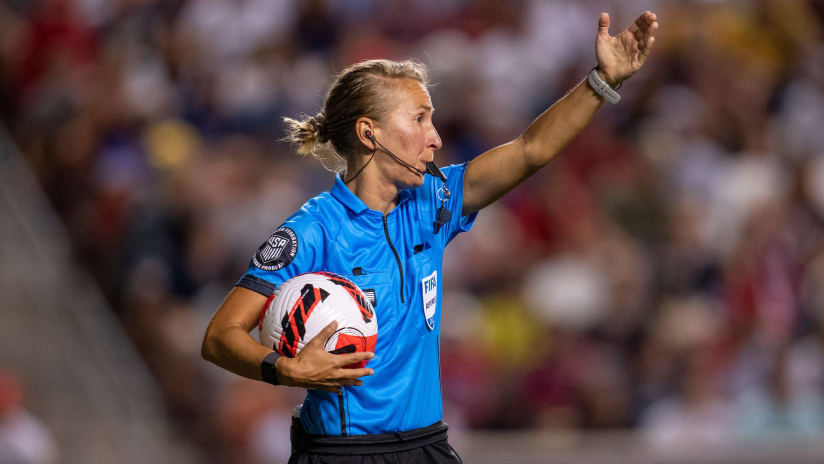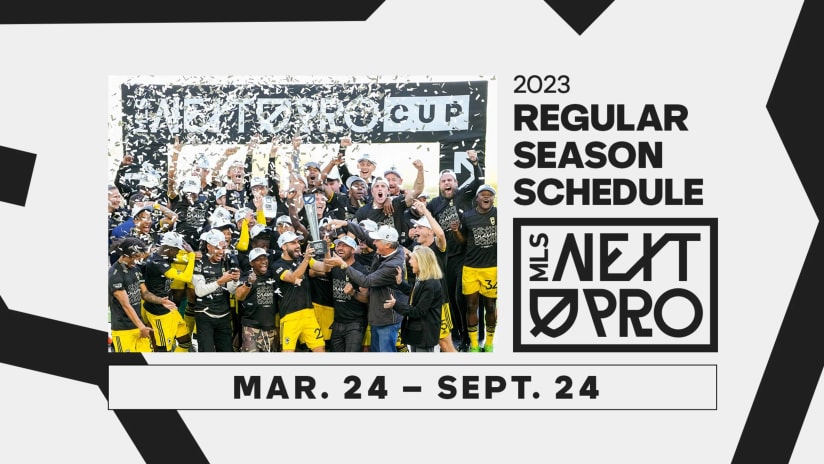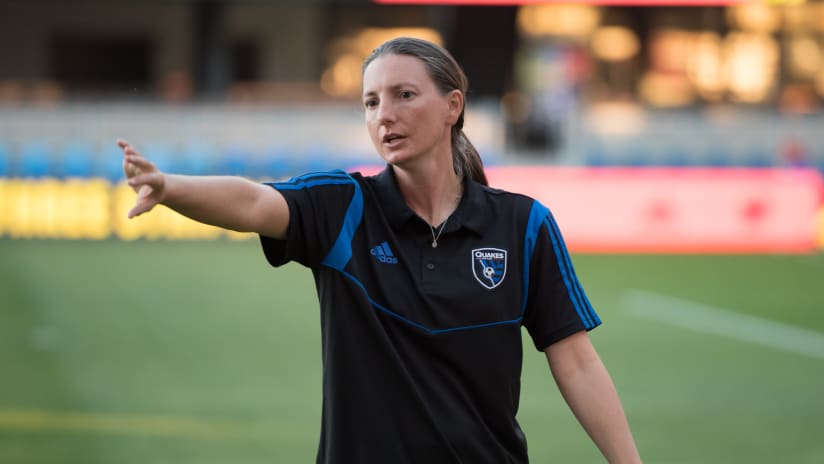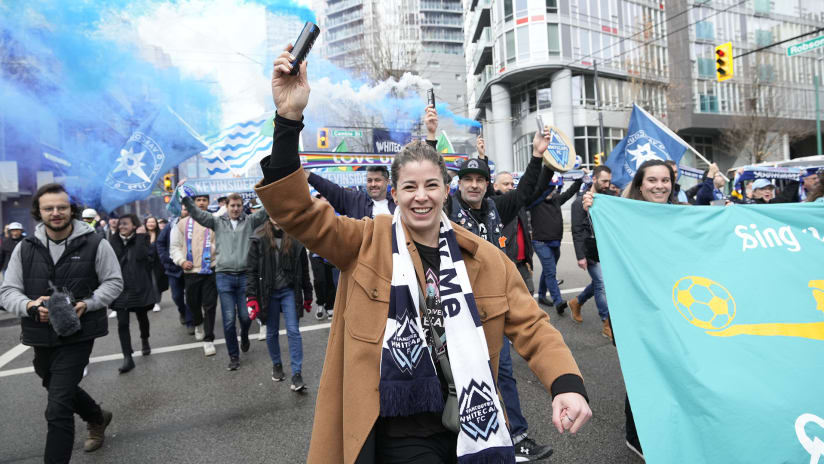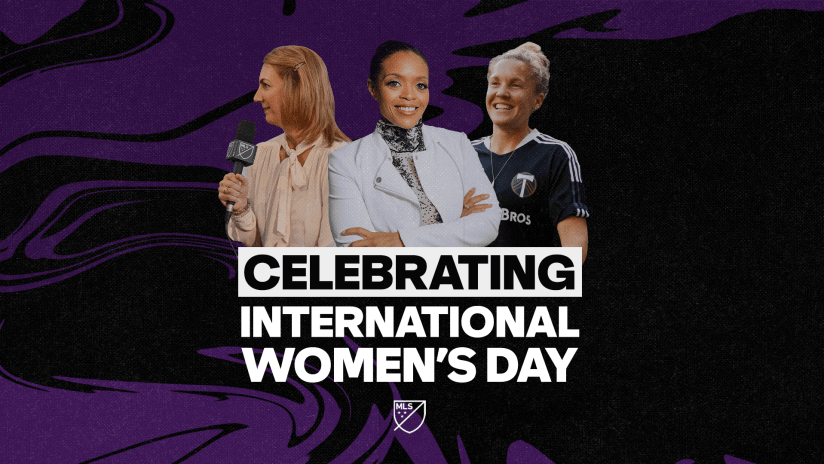Women’s History Month is a time to reflect on all the achievements women have contributed to the game we love. Of course, the players garner most of the glory and attention in the public eye, and we don’t always get insight into the day-to-day life of those behind the scenes keeping the soccer globe spinning.
Ekaterina (Katja) Koroleva is a real-time example of a woman moving soccer forward in the United States and beyond. She is a FIFA and PRO (Professional Referee Organization) member in her 10th year as a professional.
She recently joined MLS NEXT Pro for an in-depth interview spanning her career, the behind-the-scenes life of a professional referee, and how she arrived at being able to call herself a two-time World Cup referee by the time this year is over.
The biggest takeaway: The role of a professional soccer referee is incomparable to any other in the sport, and developing the traits to be successful is a challenge that takes years to master.
You must be bold yet vulnerable. Firm, yet open-minded. You must be physically fit enough to run with the players for 90-plus minutes and mentally fit to stand your ground when their ferocity is directed at you.
To be a referee, you need to know the game. In Koroleva’s case, knowing herself was equally part of it.
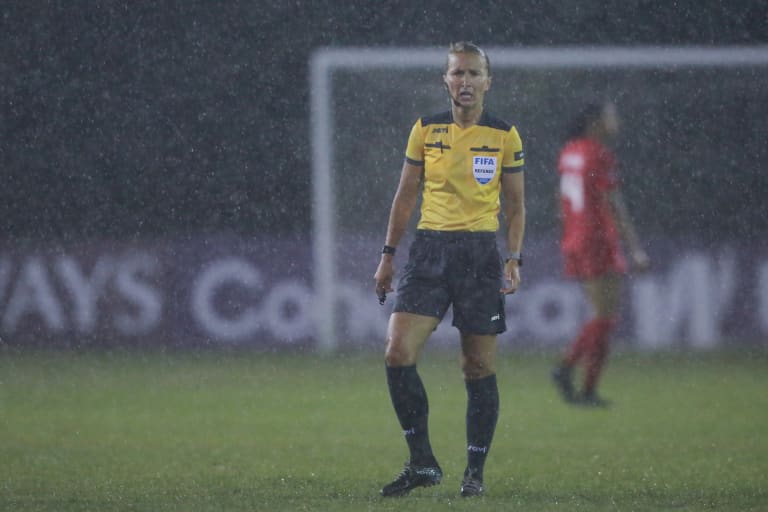
"Working our way through professional ranks, I just saw an increased level of players and skills, and I wanted to continue to be a part of that spectacle and the sport that’s really the greatest sport in the world,” she said. “I was a young player who initially started refereeing to pay my club bills and with time, saw the limitations of my own playing skills, but still had a high enough soccer IQ that I wanted to be involved in the field and I really wanted to be a part of a spectacle of athletes perfecting their skill."
There is a wide array of scenes in the United States soccer landscape. On the professional pathway, you can find everything from a sparsely attended match at a community field to a sold-out stadium cheering for their team or nation like the game is a life or death matter.
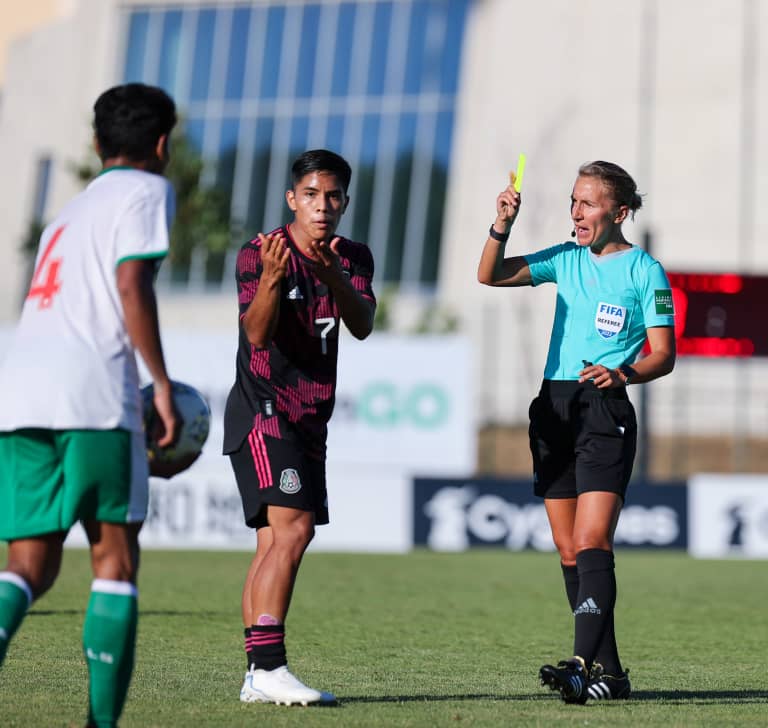
“And so with each step - through first refereeing youth, then some adult and semi-professional mixed with college, and then working our way through professional ranks, I just saw an increased level of players and skills, and I wanted to continue to be a part of that spectacle and the sport that’s really the greatest sport in the world.”
Koroleva debuted with PRO in 2013 and has compiled a decorated resume with several big matches and competitions. Beyond her duties with PRO, Koroleva is also a part of FIFA which unlocks the opportunity to be a part of the grandest stage in the game - the World Cup. She officiated the 2019 Women’s World Cup in France and is set to depart for the 2023 World Cup in Australia and New Zealand in July.
“It’s certainly a big honor; it carries a lot of responsibilities. And it’s not a privilege; it’s something we work hard towards, and we have to take advantage of all the opportunities and certainly continue to maintain and perform on the field," she said. "All the outside hard work doesn’t matter if we’re not performing on the field just like the players. So there’s a degree of expectations of performance during a match.”
The comparison to players is apt and often overlooked. Simply put, there is only so much room for the best of the best at the top of the game, and accolades are savored. Suppose a referee wants to become esteemed and participate in World Cups like Koroleva. In that case, there is a grind to it, and staying mentally fit is equal to the physical aspect.
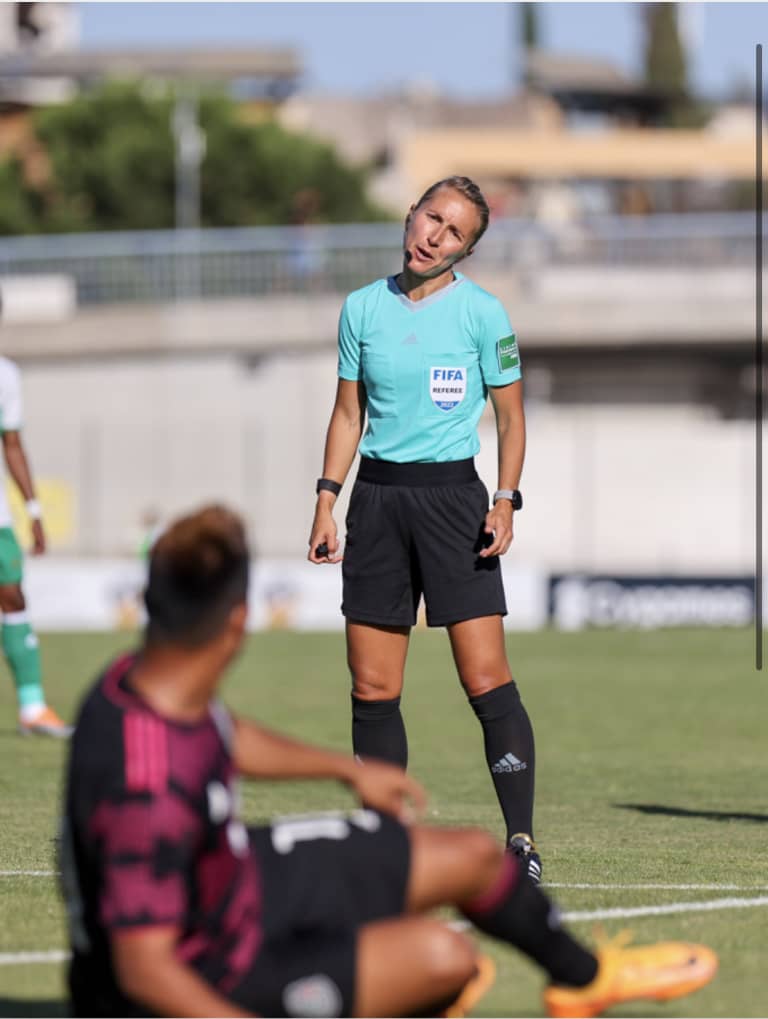
The journey of a referee requires confronting the inevitable discomfort of making mistakes. Between the 22 players on the field and thousands in the stands, the effects of an error in managing a match can travel quickly and require self-soothing to keep things on the rails.
“The last thing we want is for one mistake to lead into the second mistake and third mistake, so we have to find this balance of really resetting quickly in the match and become more present because the next decision is imminent,” Koroleva said.
“We make hundreds of decisions in a match, and so the next decision is seconds away. Really, for me, it’s finding something that’s physically around. Sometimes it can be a voice of a teammate to lure me back into the present moment and to make sure that I’m there and available in the mental space for the next decision that’s necessary for me, and stop lingering on a previous decision until the match is over.”
Dealing with the players
The world of soccer is massive from the outside looking in, but it isn’t so big for Koroleva and her colleagues. They will inevitably clash with players. They will inevitably see those players again. Neither party wants to be distracted or have their game affected by a looming chasm.
“There’s instances where I thought I saw something very clear, but perhaps my image was blurred or it happened really fast, and our brain is really powerful in sometimes putting pieces together and creating a picture when we may have not seen it fully,” Koroleva shared. “So we can go back on video review, and perhaps next month or next year - it’s culturally okay for us to go back to the players and say, ‘Hey, last month, last year, I missed that challenge on you. I’m sorry.’ and I think they accept us being humans and it continues to grow and develop relationships,”
The scouting aspect of refereeing is also rarely discussed. Koroleva shared that referees deeply scout to understand formations, tactics, recent matchups, and player temperament (among others) before heading into a match. That preparation helps reduce surprises, but the reality is she will inevitably be drawn into decision-making and discipline.
“Players are humans as well, and they’re emotional. They’re competitors. So, a lot of times they have a fire. That’s an emotional outburst in that moment because they care they want to win. And they’re professional athletes who are being paid to do this. So we have to recognize the difference between something where they are dissenting and taking things out on referees that are more personal versus just being emotionally invested in the game.
“And for the most part, if we give players the space and time they are just mostly emotionally invested in the game and will calm down in a natural way. Certainly, there are instances where we have to approach them and change their behavior, whether that’s through stronger communication. And then ultimately we do have tools of using yellow and red cards that we really try to avoid, especially in behavioral situations.”
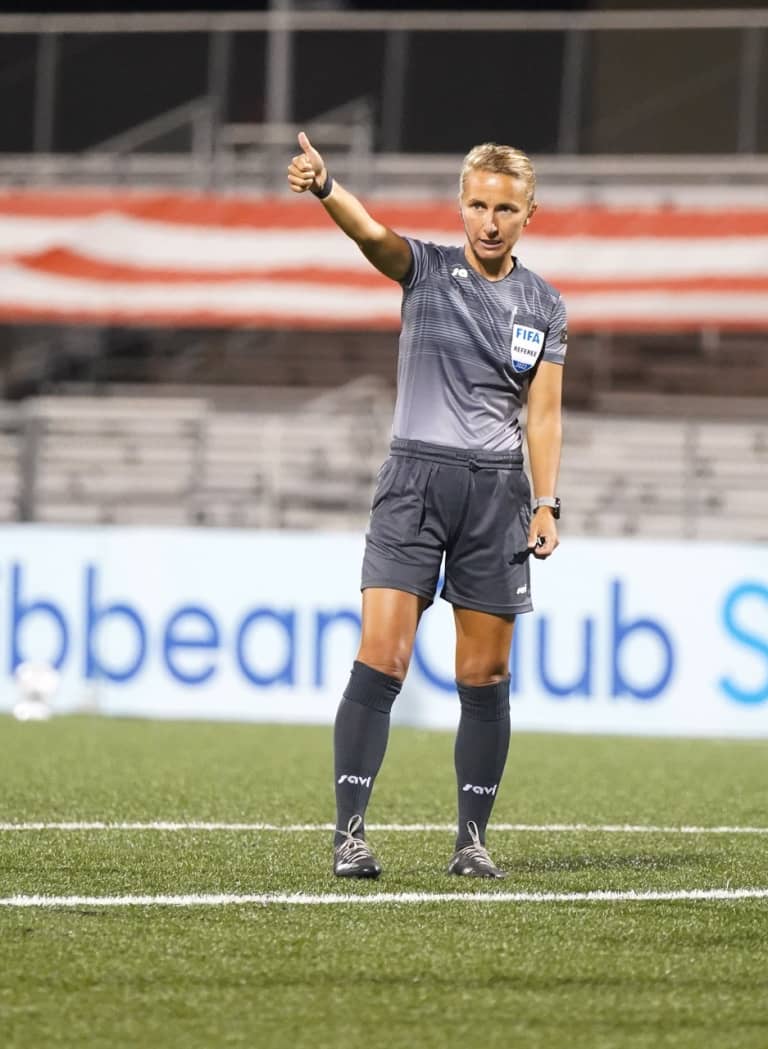
Koroleva advocates that there is a shortage of referees in the United States. The life of a professional referee has many challenges and rewards for the taking. There are clear steps to take for anyone curious about making it their career. But it can start as a hobby.
“Step one is to get certified and join the community. There are endless possibilities. If you can dream it, you can really achieve it.” she said.” There’s a demand for referees. We lose a lot of referees yearly.”
The first two years of refereeing are critical for building a long career. Koroleva mentioned that one of the keys to success is getting paired with supportive colleagues and having good mentors.
“It helps create great memories and friendships. It’s a way to stay active and fit. There’s opportunities for travel and seeing new parts of the world. And just a real sense of belonging. And so I really do encourage people to go out there and view this as a possible passion career and become involved and be part of the community.”

